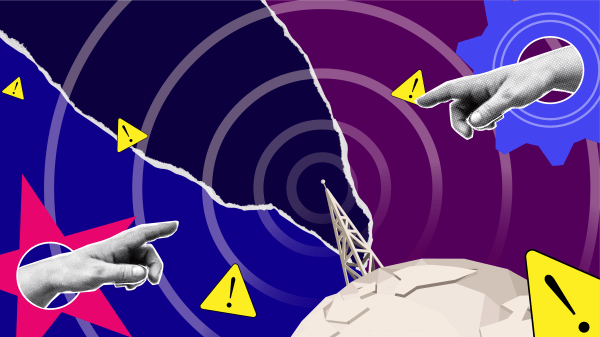US intelligence report warns of increased offensive cyber, disinformation around the world

Over the course of the next 20 years, nation-states will see a rise in targeted offensive cyber-operations and disinformation in an increasingly “volatile and confrontational” global security landscape, according to a new U.S. intelligence assessment.
The U.S. intelligence community’s Global Trends report, issued on Thursday, notes many of theses offensive cyber-operations will likely target civilian and military infrastructure. Nation-states will likely increasingly favor tools that allow them to operate below the level of armed conflict in order to avoid the geopolitical and resource costs that come with violence and traditional warfare, the report adds. Countries also will leverage proxies such as hackers or military contractors to disrupt their adversaries, according to the assessment, which is issued by the National Intelligence Council, which reports to the Director of National Intelligence.
“Proxies and private companies can reduce the cost of training, equipping, and retaining specialized units and provide manpower for countries with declining populations,” the document states. “Some groups can more quickly achieve objectives with smaller footprints and asymmetric techniques.”
The assessment, issued every four years, touches on a variety of challenges the global security community expects to face over the next two decades, ranging from the fallout from the coronavirus pandemic to the effects of climate change.
Few of the cyber-related assessments will come as a surprise to either intelligence personnel or the cybersecurity community.
However, it crystallizes several cloak-and-dagger trends in the world of digital espionage, which cyber pros are now seeing play out on the world stage.
Nation-states are already relying on proxies or companies to conduct cyber-operations or misinformation on their behalf, for instance. The Russian government’s Internet Research Agency, the same troll farm that amplified manufactured narratives during the 2016 presidential elections, began outsourcing its operations to partners in Africa last year, according to the National Security Agency. Front companies also have shielded malicious activity from China, Iran and North Korea, according to U.S. authorities.
The assessment warns that diplomatic conversations about deterrence and red lines will gradually become more convoluted. The U.S. government is already facing the difficult reality of finding effective deterrence schemes, and last year the FBI introduced a strategy aimed at better dissuading foreign hackers.
The National Intelligence Council’s prediction that disinformation is going to proliferate in the coming years is underway. Russian, Chinese and Iranian information operations have been working to reshape narratives about U.S. democracy amid the fallout of the storming of the Capitol, influence American voters and exploit political divisions in the U.S. — with both human and online conduits — according to the U.S. intelligence community.
Determining what is ground truth in the years ahead will become increasingly difficult, as “people are likely to gravitate to information silos of people who share similar views, reinforcing beliefs and understanding of the truth,” the report notes.
The report also warns of synthetic media or deepfake content, or manipulated videos, audio, images or text, and the effects they can have on collective understanding of truth.
The assessment predicts states will also likely jockey for power and influence, such as when setting norms, a battle that is already taking place at the United Nations where China, Russia, the U.S., and many other nations debate acceptable behavior in cyberspace.
“During the next two decades, the intensity of competition for global influence is likely to reach its highest level since the Cold War,” the report notes. “No single state is likely to be positioned to dominate across all regions or domains, and a broader range of actors will compete to advance their ideologies, goals, and interests.”
Global privacy paradigms also are on the verge of shifting, the report warns.
“Privacy and anonymity may effectively disappear by choice or government mandate, as all aspects of personal and professional lives are tracked by global networks,” the report states.
As more governments continue to gain control of surveillance capabilities, privacy will continue to erode, the report suggests.
“Authoritarian governments are likely to exploit increased data to monitor and even control their populations,” the assessment notes, going on to predict they “will exercise unprecedented surveillance capabilities to enforce laws and provide security while tracking and de-anonymizing citizens and potentially targeting individuals.”
Governments have already begun availing themselves of commercially available spying technology to target vulnerable individuals, according to researchers. Governments such as Morocco, Saudi Arabia and India are accused of using spyware to target dissidents, journalists and other vulnerable people.





